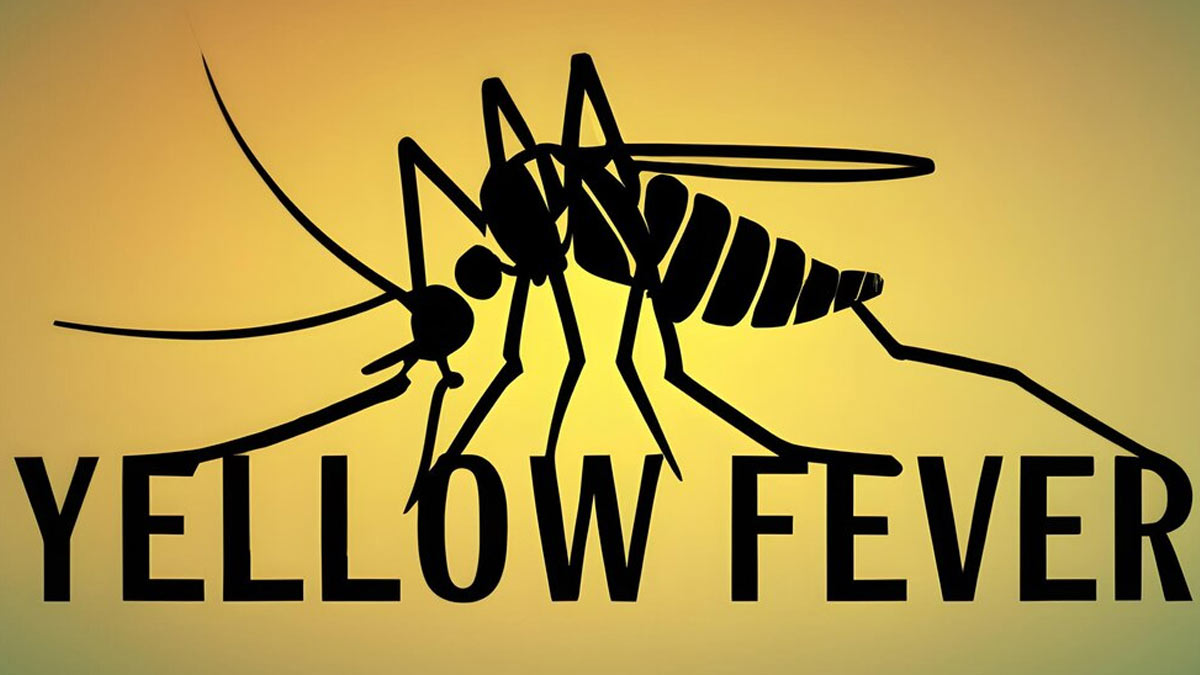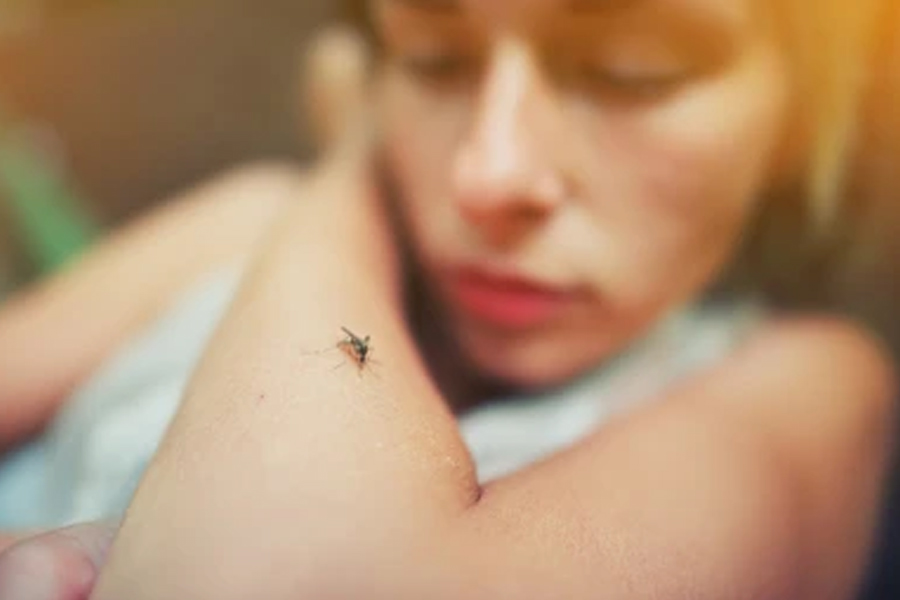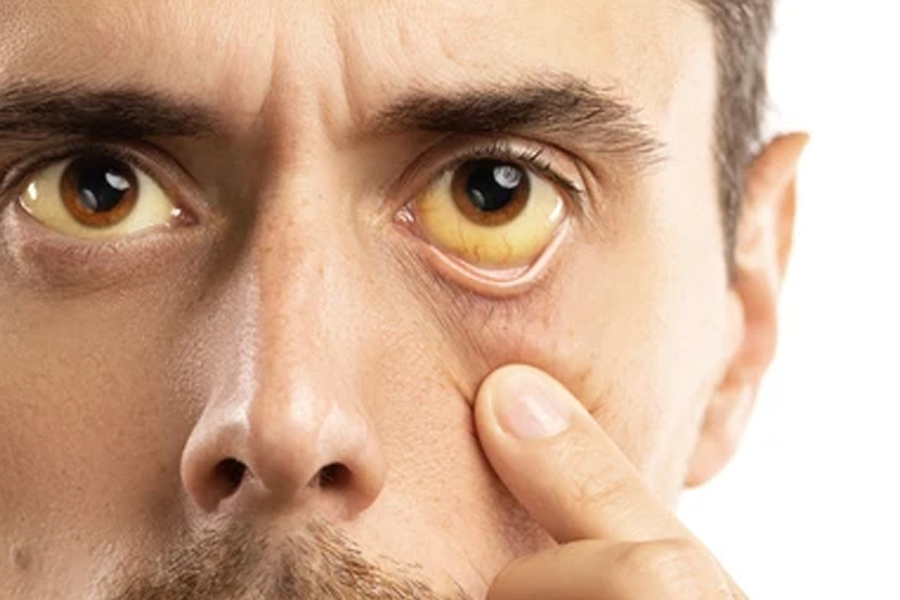
Have you heard about a condition known as viral fever that gets transmitted by the spread of infected mosquitoes? Yellow fever is a haemorrhagic illness characterised by elevated body temperature, skin bleeding, and the death of liver and kidney cells. When a significant number of liver cells die, liver impairment arises, resulting in jaundice. We spoke to Dr Ranga Santhosh Kumar, Consultant General Physician and Diabetologist, Yashoda Hospitals, Hyderabad, who explained yellow fever, its symptoms, causes, diagnosis, treatment, and preventive measures.
Table of Content:-

According to the World Health Organization, yellow fever is a disease prone to epidemics, transmitted by mosquitoes and preventable through vaccination. It is spread to humans through the bites of infected mosquitoes carrying an arbovirus, which is a virus transmitted by vectors like mosquitoes, ticks, or other arthropods. The disease is caused by the transmission of this arbovirus by infected Aedes and Haemagogus mosquitoes.
Symptoms of Yellow Fever

Dr Kumar said, "The symptoms of yellow fever can vary in severity and may initially resemble those of the flu. Common symptoms include fever, headache, muscle pain, nausea, vomiting, and fatigue. In mild cases, these symptoms may resolve on their own within 3-4 days."
He added, "However, in more severe cases, you may experience jaundice, abdominal pain, bleeding, and organ failure. Severe yellow fever is often referred to as ‘yellow fever hemorrhagic fever,’ and it can be life-threatening if not treated promptly." According to the WHO, within 7–10 days, approximately half of the patients who progress to the toxic phase succumb to the illness.
Also Read: Sprays, Coils Or Essential Oils: Which One Is More Effective Against Mosquitoes?
Causes Of Yellow Fever
"The yellow fever virus, a type of flavivirus, is responsible for yellow fever, spreading through the bite of an infected Aedes and Haemagogus mosquito. Mosquitoes contract the virus by biting either a human or a monkey already infected. These mosquitoes breed in stagnant water, making areas with poor sanitation more susceptible to outbreaks. It is important to note that the disease does not transfer from person to person", added Dr Kumar.
Diagnosis Of Yellow Fever
Dr Kumar said, "In the early stages of the disease, Polymerase Chain Reaction (PCR) testing on blood samples can occasionally detect the virus. However, in later stages, the identification of antibodies becomes necessary, requiring tests, such as ELISA and PRNT."
Treatment For Yellow Fever
At present, there is no cure for this condition, and treatment focuses on managing symptoms and providing support for the immune system.
According to StatPearls, patients should receive care in the Intensive Care Unit (ICU) and undergo close monitoring for Disseminated Intravascular Coagulation (DIC), haemorrhage, and kidney and liver dysfunction. Management of coagulopathy involves the use of fresh frozen plasma, and renal failure may necessitate dialysis. Despite yellow fever not being transmissible between individuals, isolation of the patient should be implemented until the diagnosis is confirmed.
Also Read: Intensifying Vector Control in Summer Months: A Necessary Step in Mosquito-Borne Disease Prevention

Precautions For Yellow Fever
Prevention is key to reducing the risk of yellow fever infection, especially for people residing in or travelling to endemic regions. Dr Kumar listed the preventive measures as follows:
Vaccination
The most effective form of prevention is vaccination. According to the WHO, the vaccine offers effective immunity to 80–100% of vaccinated individuals within 10 days, and to over 99% within 30 days post-vaccination.
Vector Control
In addition to vaccination, you can reduce their risk of yellow fever by taking measures to avoid mosquito bites. This includes using insect repellent, wearing long-sleeved clothing and pants, and sleeping under mosquito nets, especially during peak mosquito activity times (dawn and dusk). Eliminating standing water around homes and communities can also help reduce mosquito breeding sites.
[Disclaimer: This article contains information provided by an expert and is for informational purposes only. Hence, we advise you to consult your expert if you are dealing with any health complications to get the necessary treatment.]
Also watch this video
Read Next
Christina Applegate Opens Up About Her Eating Disorder; What Are The Types Of Eating Disorders
How we keep this article up to date:
We work with experts and keep a close eye on the latest in health and wellness. Whenever there is a new research or helpful information, we update our articles with accurate and useful advice.
Current Version
